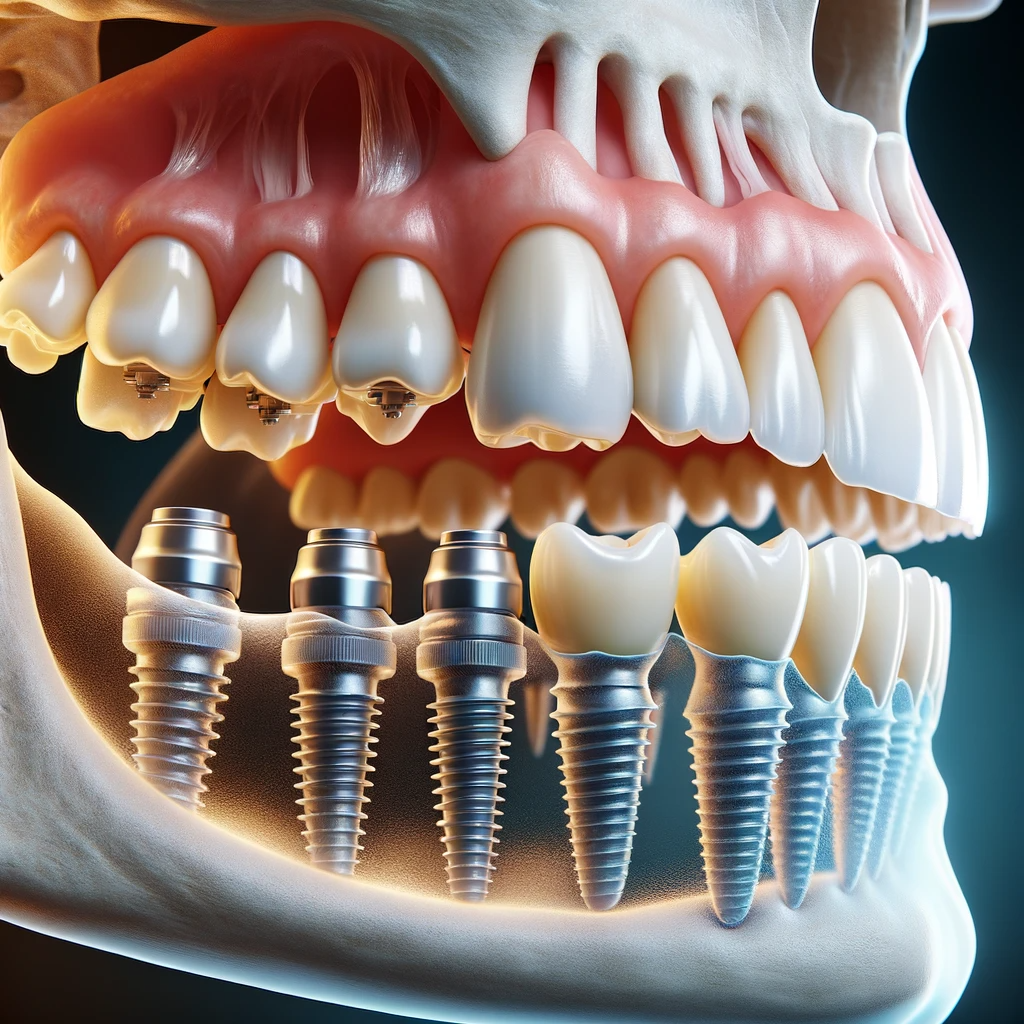The Of Dental Sense
Table of ContentsThe 4-Minute Rule for Dental SenseNot known Incorrect Statements About Dental Sense The Facts About Dental Sense UncoveredFascination About Dental Sense
are clinical tools surgically implanted into the jaw to restore an individual's capability to eat or their look. They offer support for fabricated (phony) teeth, such as crowns, bridges, or dentures. When a tooth is shed due to injury or condition, an individual can experience issues such as fast bone loss, faulty speech, or adjustments to chewing patterns that result in discomfort.Dental dental implant systems are composed of a dental implant body and oral implant joint and might likewise include a joint addiction screw. Front tooth filling. The oral implant body is surgically inserted in the jawbone instead of the tooth's origin. The dental implant joint is typically connected to the dental implant body by the joint fixation screw and expands through gums right into the mouth to sustain the affixed artificial teeth
Smoking may affect the recovery process and decrease the long-term success of the implant. The healing process for the dental implant body may take several months or longer, throughout which time you normally have a short-term abutment in area of the tooth. the dental implant procedure: Meticulously follow the oral hygiene guidelines provided to you by your dental supplier.
Getting My Dental Sense To Work
Implant failing can lead to the demand for an additional operation to repair or replace the implant system. Brings back the capability to eat Restores aesthetic appearance Aids keep the jawbone from reducing due to bone loss Preserves the wellness of the surrounding bone and gum tissues Assists keep nearby (close-by) teeth secure Improves high quality of life Damage to bordering all-natural teeth throughout implant placement Injury to the surrounding cells throughout surgery, such as sinus opening Injury throughout surgical treatment (for instance, crack of surrounding jawbone) Insufficient function, such as seeming like the teeth do not bite together usually A feeling that the tooth is loosened or twisting in position resulting from an abutment screw loosening up Implant body failure (looseness of the implant body) because of systemic infection, which might be most likely in people with unrestrained diabetics issues because of neighborhood infection in bone and periodontals sustaining the dental implant body due to delayed healing, which might be most likely in people who smoke Problem cleansing the gum tissues around the dental implant, resulting in inadequate dental hygiene Untreated gum disease Post-surgical feeling numb because of nerve impingement or damages Constantly inform health and wellness treatment companies and imaging technicians that you have oral implants before any type of magnetic vibration imaging (MRI) or x-ray treatments.
FDA is not familiar with any type of adverse occasions reported for MRI or x-ray treatments with oral implants. Oral implants systems are commonly constructed from products that adhere to global agreement standards of the International Organization for Standardization (ISO) or ASTM International. These standards have details of what makes a safe product.

A dental implant is a framework that replaces a missing out on tooth. With screw-like devices, the specialist inserts an implant into the jawbone, and it acts as a support for a man-made tooth, called a crown.
The Buzz on Dental Sense
Some individuals are not eligible for dental implant surgery. It is for dental surgeons to operate people with: intense illnessuncontrollable metabolic diseasebone or soft tissue disease or infectionIf these concerns are fixed, an individual can have the surgical procedure. In, dental surgeons abstain from operating people with: If individuals with any one of the above undertake dental implant surgical treatment, there is a greater threat of the implant falling short.

Dental dental implant surgery is an individualized process. Provide you time to heal. Affix the article and last crown, bridge or denture.
Next, your surgeon will carefully put the dental implant right into your jaw. If your dental implant is near the front of your mouth, your dentist will certainly make a temporary tooth for you to put on up until you recover.
All about Dental Sense
Throughout the healing phase, your jawbone must fuse to the oral implant. This procedure can take anywhere from 3 to nine months.
Once your implant heals, your dentist can connect the abutment (small connector post) and your last restoration (crown, bridge or denture). This normally takes about one hour to complete and may need a second small surgical procedure. You shouldn't really feel any type of discomfort during your dental implant procedure since your company will certainly utilize medicine to numb your gums.
Comments on “All About Dental Sense”